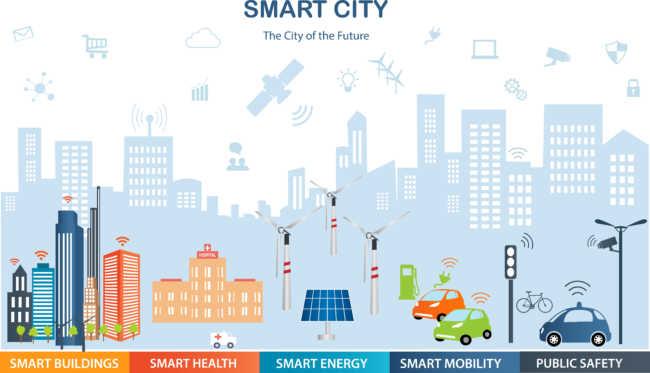Because the underlying technologies, and the initiatives that utilise them, are relatively new, it’s also valuable for those involved in developing smart city projects to share their learnings. The range and scope of networks to do this are growing as the number and variety of projects themselves develop.
There are numerous examples of collaborative frameworks and fora that form around smart city initiatives. Edinburgh’s ambitious smart city programme, for example, includes a contract with experienced provider CGI, set to run until 2030, which involves a range of implementations from educational projects to smart bins and streamlined refuse collection.
John Goodram, vice president of consulting services at CGI tellsIT Prothat knowledge sharing and partnerships are crucial to the success of a project like this. “We developed a Local Authority Special Interest Group which brings together academia, local authorities and subject matter and domain expertise to share insights from Smart Place initiatives,” he explains. “This allows us to help smooth transition bumps and ensure greater harmony and connectivity. We believe that anyone undertaking a smart city project should consider developing this type of collaborative element at a foundation level.”
Back in Sunderland, St Louis says the city is working with a provider on building an integrated smart city platform. This will allow data to aggregate rather than sit in silos, which will, in turn, “allow us to pool together and analyse information from different services to help inform coordinated multi-agency responses at the earliest point, further benefiting citizens and services”.
Sharing guidance and best practice
If smart cities are characterised by diversity, this is mirrored in terms of support at the national and regional levels. No single government department is responsible for smart cities. Instead, there are roles across a number of departments. with those in charge of housing, digital, communities and local government, transport, health and business all playing some role in the wider ecosystem.
That’s not to say there isn’t some degree of centralised guidance. British Standards Institution (BSI), the UK’s national standards body, has developed a range of standards and guides, such as its PAS 181 smart city framework and its PAS 182 data concept model to help city leaders develop and deliver smart city projects. There are also numerous regional organisations such as Smart London, which is part of the London Mayor’s administration.
These exist alongside a range of other groups, think tanks, policy organisations, academic institutions and fora on a national, regional and local basis. Events and conferences, too, are a great means for getting guidance, sharing good practice and networking.

The lack of a definitive playbook on building a smart city doesn’t seem to be holding back progress, and, as UK smart city projects expand, the breadth and range of support is growing too. For many practitioners, such as Sunderland’s St Louis, this is vital. “National and regional smart city groups often provide very practical support and guidance, based on real examples of smart city deployments,” she explains, suggesting momentum in the UK smart city landscape is gaining fast.
Share on FacebookShare on TwitterShare on LinkedInShare via EmailFeatured ResourcesBuilding data-driven government with the Microsoft Power Platform
How to break down data silos and reap valuable data insights
Free DownloadImprove security and compliance
Adopting an effective security and compliance risk management approach
Free DownloadTaking the lead on IT automation
IT leaders as evangelists for their automation strategies
Free DownloadThe best defence against ransomware
How ransomware is evolving and how to defend against it








